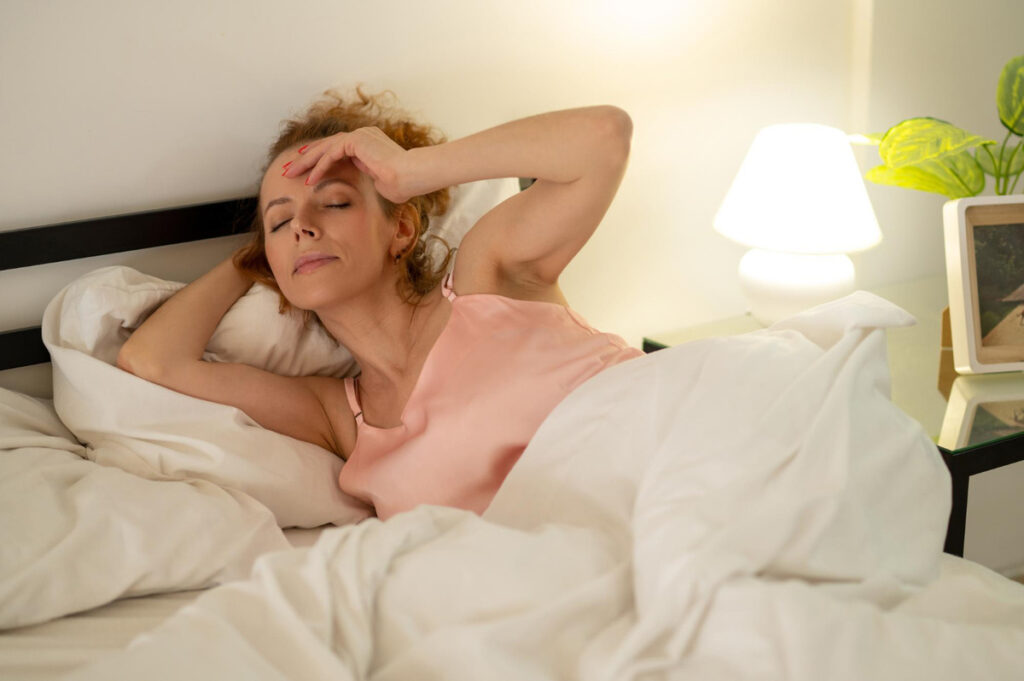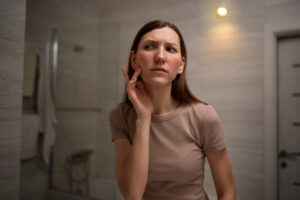Can tinnitus cause sleep apnea?
Tinnitus, the ringing or buzzing in the ears, and sleep apnea, a condition where breathing stops during sleep, are both common health issues.
Although they seem unrelated, research has suggested a potential link between the two conditions.
This article explores how tinnitus may contribute to the development or exacerbation of sleep apnea, the common symptoms of both disorders, and what you can do to manage them.
Can Tinnitus Cause Sleep Apnea?
Tinnitus is often caused by hearing damage, but it can also lead to other health complications, including sleep disturbances.
The persistent ringing or buzzing in the ears may disrupt sleep patterns, making it difficult for individuals to fall asleep or stay asleep.
Inadequate sleep can contribute to fatigue and stress, which may exacerbate existing sleep apnea symptoms or increase the risk of developing the condition.
Some studies suggest that people with tinnitus are more likely to suffer from sleep apnea, possibly due to the negative impact of poor sleep quality on overall health.
The Connection Between Tinnitus and Sleep Disruption
Both tinnitus and sleep apnea can lead to poor quality sleep, but they affect the body in different ways.
While tinnitus causes discomfort through constant noise in the ears, sleep apnea is characterized by interrupted breathing during sleep.
The stress from tinnitus may make it harder for the brain to relax enough to fall into deep sleep, and the intermittent breathing pauses associated with sleep apnea further interfere with restorative sleep cycles.
As a result, individuals suffering from both conditions may experience heightened fatigue, irritability, and even an increased risk of cardiovascular issues over time.
Symptoms of Sleep Apnea and Tinnitus
Both tinnitus and sleep apnea come with a set of noticeable symptoms, and it’s important to recognize them early.
For tinnitus, symptoms typically include ringing, buzzing, or hissing sounds in one or both ears that persist over time.
Common symptoms of sleep apnea include loud snoring, gasping for air during sleep, and feeling excessively tired during the day despite having a full night’s sleep.
People suffering from both conditions may experience more severe symptoms, including daytime sleepiness, difficulty concentrating, and irritability.
How Sleep Apnea Affects the Ears and Hearing
Sleep apnea may not only disrupt your breathing but could also affect your ear health.
When oxygen levels drop during apneic episodes, it can lead to increased blood pressure and stress on the cardiovascular system.
This stress can, over time, affect the auditory system, possibly leading to hearing issues, including tinnitus.
Furthermore, the erratic breathing patterns associated with sleep apnea can cause changes in the middle ear, leading to pressure buildup and increased discomfort for individuals with existing tinnitus.
Managing Both Tinnitus and Sleep Apnea
Managing tinnitus and sleep apnea simultaneously can be challenging, but there are several strategies that can help alleviate symptoms.
Using a CPAP (Continuous Positive Airway Pressure) machine is one of the most effective treatments for sleep apnea, as it helps keep the airway open during sleep.
For tinnitus, sound therapy or white noise machines can provide relief by masking the ringing in the ears, allowing for better sleep quality.
Lifestyle changes, such as maintaining a healthy weight, avoiding alcohol and sedatives, and practicing good sleep hygiene, can also improve both conditions.
Natural Remedies for Tinnitus Relief
There are several natural remedies that may help relieve tinnitus symptoms.
Sonus Complete, for example, is a 100% natural supplement designed to support ear health and alleviate the symptoms of tinnitus.
Its formula includes ingredients such as vitamins B12, C, and niacin, along with plant extracts known for their antioxidant and anti-inflammatory properties.
By improving circulation and promoting nerve health, Sonus Complete helps reduce the intensity of tinnitus sounds and supports better sleep quality.
If you are experiencing tinnitus, Sonus Complete can be a helpful addition to your routine, offering natural relief and potentially improving your overall sleep and well-being.
If you’re dealing with both tinnitus and sleep apnea, it’s essential to address both conditions to improve your quality of life.
Incorporating effective treatments like CPAP therapy for sleep apnea and using natural supplements like Sonus Complete for tinnitus can help you manage both conditions more effectively.
Visit the official Sonus Complete website to learn more and take the first step toward a better night’s sleep and improved ear health.









